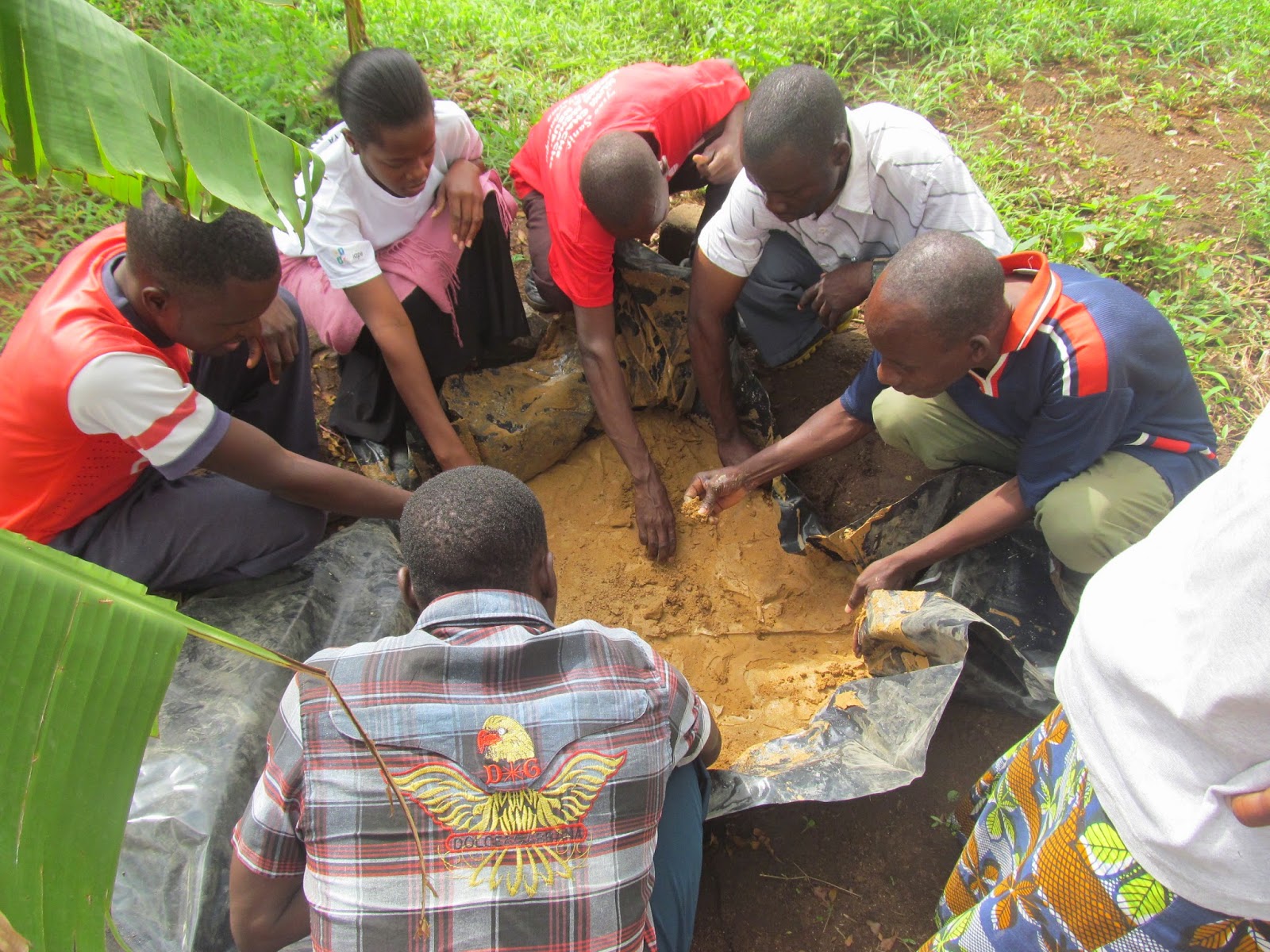I love that life here is never dull. But every now and then, I just get a little overwhelmed and crave a little bit of a "normal" ... although, what really is that anyway? I'm not sure there is such a thing, but it exists in my head as all the "good" bits of the life that once was normal (for the majority of my existence thus far), and I think that I want it. I'm sorry to say it often revolves around incredibly selfish and unimportant things ... things like relaxing in the evening watching TV and eating chocolate or going shopping for quick and ready food in a big supermarket or shopping for new clothes (which I never used to like doing anyway!!) and doing it all without power cuts.
The reality is I'm far happier here doing what we are meant to be doing, or I should say
being who we are meant to
be here. I naturally gravitate to (and thrive on) doing and constantly need to be reminded just to "be." Sometimes it is easy to get carried away by the doing, and forget to just be. I think this is when getting overwhelmed comes into play! Sometimes the frustration of trying to "do" just gets too hard. Especially when the power is out, when the bricks don't arrive again and again, when there are no bees in the hive, when I just don't have enough Swahili or there is no money for the "good" things I want to
do! Then I have to remember to be. Be who I am. Be a wife and mother. Be a good host. Be a servant and friend ... being these things not based on what I do but who I am!
Sometimes I struggle with the tension as I write this blog! The purpose in writing is to let you know what we are
doing ... particularly for you friends and family that we are far away from, those of you who are supporting us, encouraging us and praying for us! We want you to feel involved in what we are doing as you are such a big part of it. But at the same time, sometimes I feel I am just writing a long report of things
we are
doing which doesn't really relate to anything in your life (and doesn't seem particularly "normal"). It really isn't all about doing here, but that is what often seems to come across!
That said I am now going to tell you more about what we have been doing ... oh dear!
Everything (in terms of projects etc.) we are doing here suddenly seemed to all happen at once this week (which probably explains my inner turmoil and overwhelmed reaction!). On Friday night I arrived back from the Bee symposium, my head full of all things bees and all the things possible to do. Saturday morning was a quick change of gear as after getting the girls off to early morning football, I was with the Upendo wa Mama group. We chatted and made beads. We continued with our reading through Genesis, finishing chapter one while talking about how we are all made in God's image, whatever colour, tribe, size, background ... It was lovely to welcome a new mama, Fatuma (who has albinism herself) to the group. Then another gear shift. Later in the day (after the school fair) we had a very good meeting with Dr Makori and it was exciting to talk about the potential health projects on the islands.
After meeting with a great church group on Sunday, on Monday, our good friends Hosea and Mendriad arrived from Magozi, the village where we first started the fuel-efficient stoves project. On Tuesday we took them to Kisesa to see Pastor Baraka's family and see how the agriculture project is doing (see the good progress with the new methods, particularly in comparison with the old method maize in the photos below). And on Wednesday with Mendriad and Hosea, we started the training for the new fuel-efficient stoves group in Tambukareli. See the great stoves they are making in the photos below! (I will explain more about what we are doing here later when things are a little quieter!) Everything is very interesting and exciting, and after each day I was left wanting to focus all my thoughts and energy on that one thing ... but in the end with time so short, found I had to focus any spare thoughts on just having rooms and meals prepared for guests and clean school uniforms and packed book bags with completed homework. What to do?
At the end of the day, I can rest in the fact that what I do comes out of who I am in Christ. Doing is still important. But I know that who I am does not depend on what I do. In fact, not a lot depends on what I do! Even
being a mother! And there is rest in that. There is no need to be overwhelmed and no need to crave anything else.
Farming Photo Update
 |
| With Mendriad and Hosea sorting out the trees to plant with Pastor Amon |
 |
It is easy to see the difference that the new techniques make when you compare the maize
in the background with the foreground maize which was planted at the same time! |
Training for the Fuel-Efficient Stoves Group
Day One: prepare the clay, make the body of stove and turn out
 |
| Mendriad teaches our Mwanza trainees come trainers! |
 |
| Tim recaps after Day One |
Day Two: Cut handles and pot rests
 |
| Finishing touches after Day Two |
Day Three: Cut the door and finish with smoothing and decorating
 |
| Beautifully decorated! |
 |
| Making the kiln (yes, the bricks finally arrived!) |








.jpg)
















































